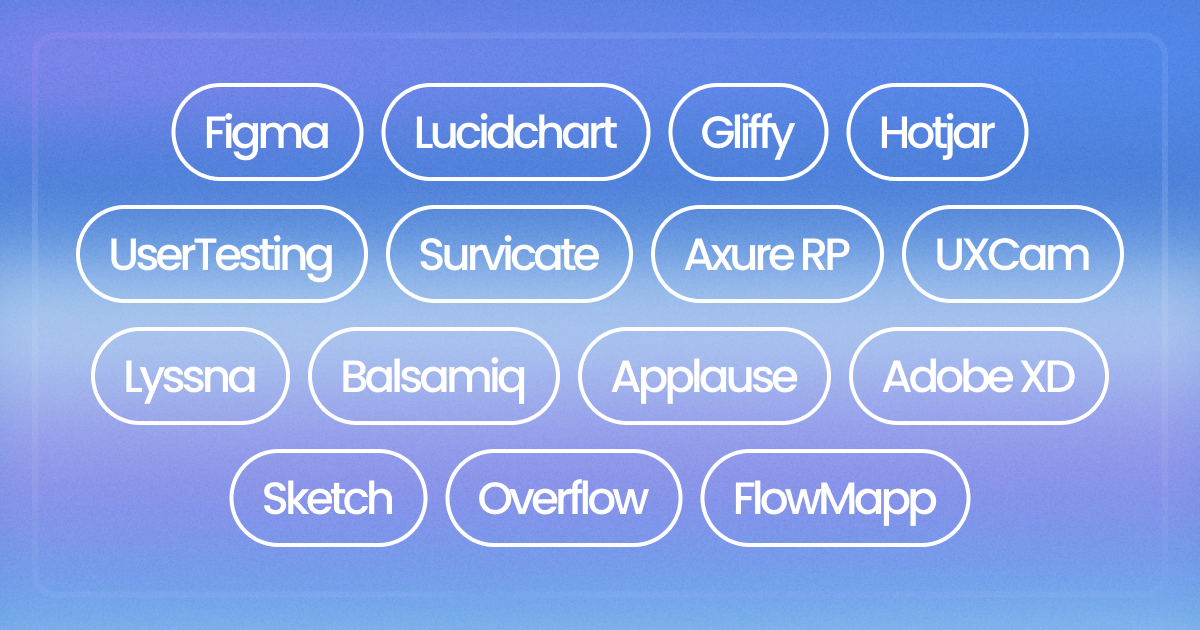Back to blog
4 MIN READ
User Behavior Analytics Examples and Case Studies
PUBLISHED
24 April, 2024

Product Analytics Expert
Looking for inspiring examples of user behavior analytics?
Great products are (almost) never built in isolation—they’re co-created with our users.
A user problem sparks the core idea, and ongoing user behavior data is the fuel that slowly but surely refines that idea. Without understanding how users interact with our product, we’re left to guess and hope for the best.
User behavior analytics is a powerful tool. But it can sometimes be hard to imagine the theory in real life. So, in this guide, we’ll explore concrete examples of how user behavior data can be used to optimize and improve a product.
But first…
Why listen to us?
At UXCam, user behavior is our specialty.
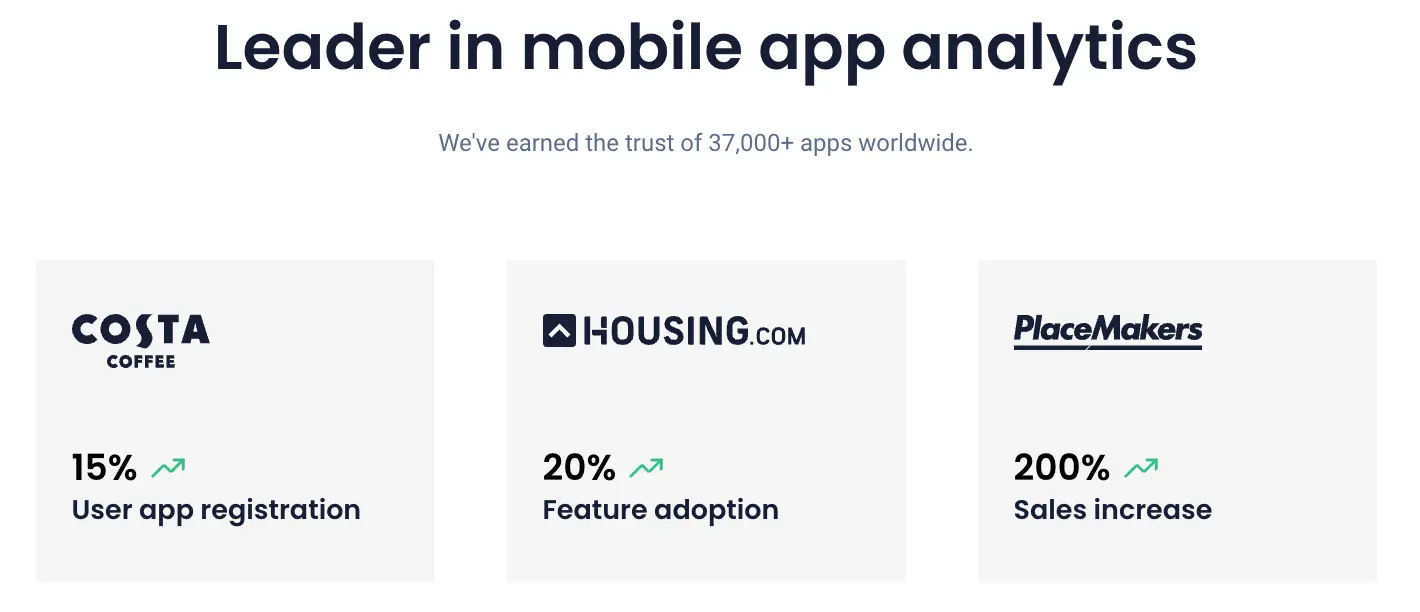
We work with over 37,000 mobile product teams worldwide, providing them with valuable insights into their users and products. Over the years we’ve picked up some pretty compelling examples of the impact user behavior analytics can have.
And in this guide, we’d like to share a few with you.
Helpful summary
Overview: We describe five real-world examples of user behavior analytics to get you excited about the process.
Why listen to us: We’re a leading mobile analytics provider trusted by over 37,000 mobile product teams.
Why this matters: User behavior analytics gives you the data you need to make reliably sound product decisions.
Action points: Read through the examples below and see whether any of the scenarios or data points resonate with your own product.
Further research: Check out the UXCam blog for more insights into mobile analytics and product optimization.
What is user behavior analytics?
We’ll get to the examples in a second. First, let’s set the stage—what is user behavior analytics anyway?
The simple definition is that it’s the process of transforming user behavior data (clicks, taps, etc.) into actionable insights. Of course, this isn’t as simple as it sounds. You need specialized tools to collect the data, techniques to analyze it, and a solid understanding of user behavior to make sense of it all.
It’s well worth the effort, though.
As we’ll (hopefully) show with these examples, user behavior analytics can produce some pretty incredible results for your business. From doubling sales to boosting adoption by 5,000% (yes, really), we’ve seen first-hand just how powerful this approach can be.
Why user behavior analytics?
Better product outcomes: When you align your product with your users' wants, needs, and expectations, amazing things start to happen. Revenue grows, customer satisfaction increases, and you gain a competitive edge.
More confident development: User behavior analytics (when done well) is as close to a definitive blueprint for successful product development as you can get. When you have real data about how your users navigate, engage, and interact with your product, you can pretty accurately predict how they’ll respond to your decisions.
Targeted improvements: Finally, user behavior analytics also allows you to distinguish between the behaviors of different user segments. This means your decisions can target specific groups, rather than taking a one-size-fits-all approach.
3 examples of user behavior analytics
Here are some examples of user behavior analysis to inspire you;
Addressing pain points - The Recora case study
Data-driven development - Inspire fitness case study
Testing hypotheses - Job Nimbus case study
1. Recora: Addressing pain points
Every product has quirks that annoy users. Usually, they aren’t dealbreakers on their own… but lots of little annoyances can add up to lost customers pretty quickly. This is an issue that Recora ( a virtual cardiac recovery app) faced head on.
The app was received well in general, but the team was seeing a lot of support tickets complaining of bugs and issues that couldn’t be replicated. And if the issue wasn’t technical, it was likely an issue with user error.
The product team turned to UXCam’s user behavior analytics tools.
They started by segmenting the impacted sessions. Then, they looked for patterns using heatmaps and event analytics. When they found a button that tons of impacted sessions interacted with, they zoomed in with session replays and hunted for the root cause.
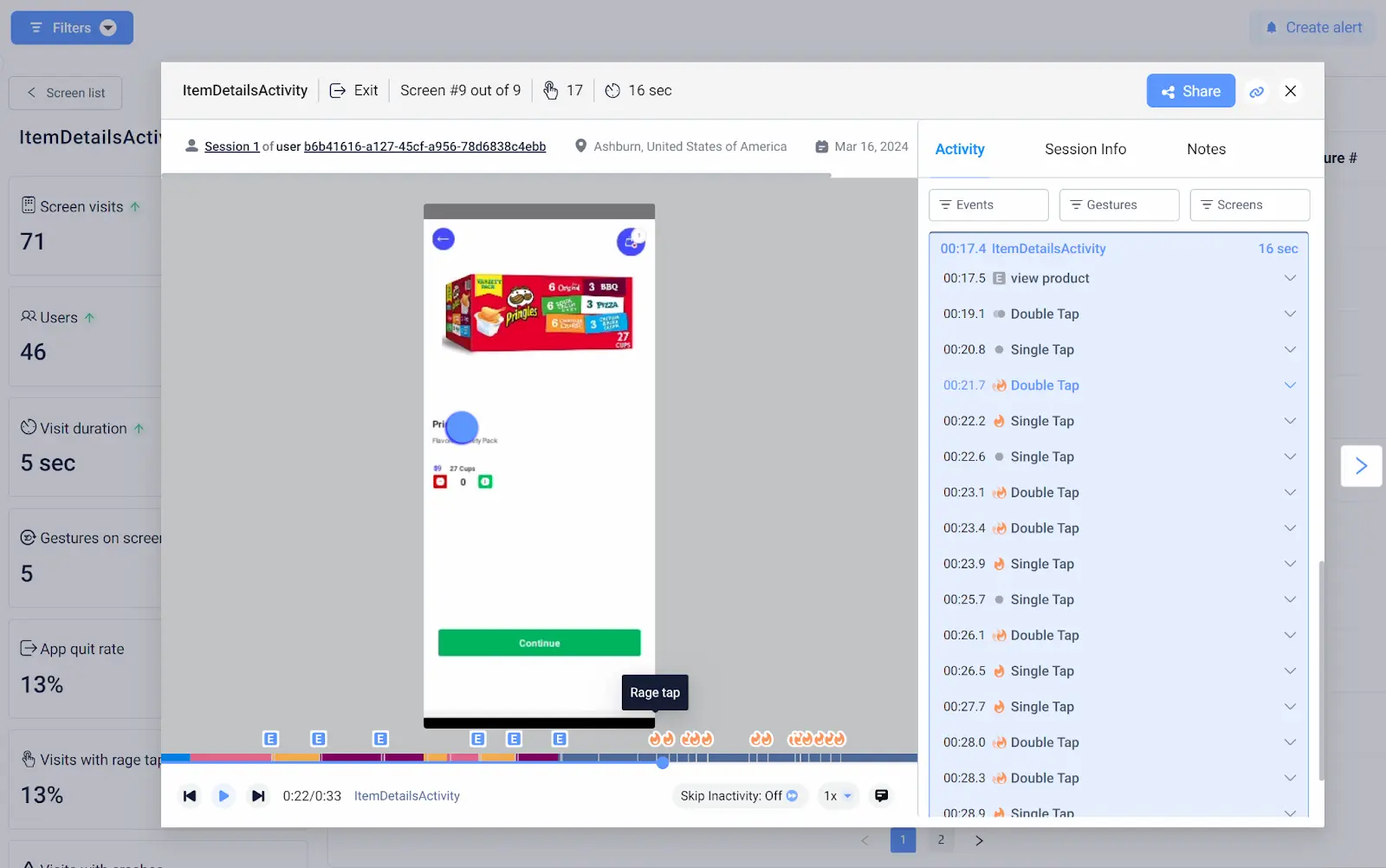
The culprit? Users were pressing and holding a button that was meant to be tapped. It took ten minutes of development time to add this functionality, and it slashed support tickets by 142% instantly.
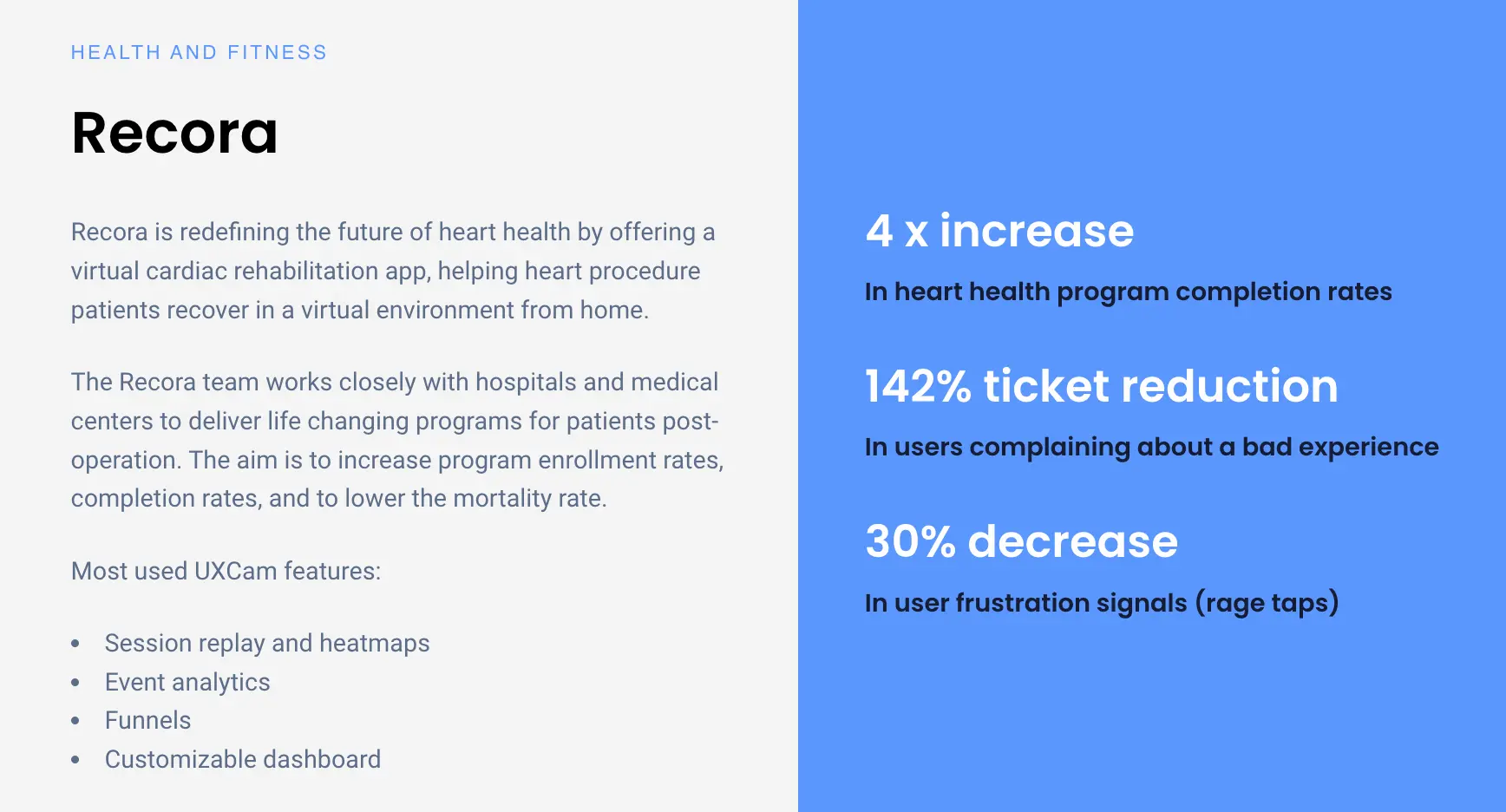
2. Inspire Fitness: Data-driven development
When you’re building a product, how do you know what to prioritize? The most reliable way is surprisingly simple—analyze what’s already resonating with users. This is a technique that Inspire Fitness used to great success.
Inspire Fitness is a leader in online fitness classes. And if you know anything about the health and fitness market, you know it’s crowded. Standing out means being acutely aware of what your users want and expect from your product (not competitors).
The team turned to UXCam to understand how users were interacting with their app.
More specifically, they:
Set up events to identify popular classes and instructors
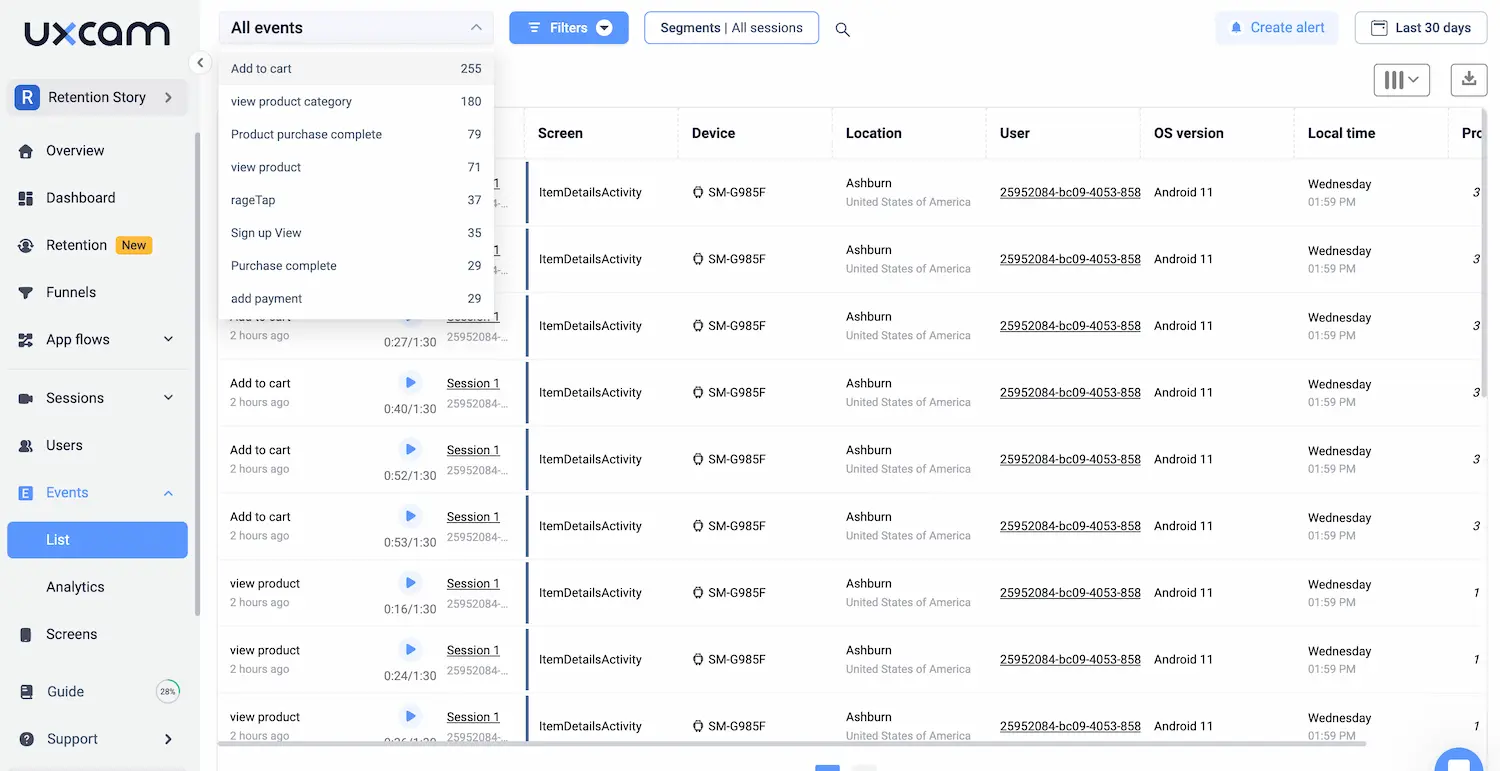
Analyzed heatmaps for new features to see how users were engaging with them

Built dashboards to track key metrics
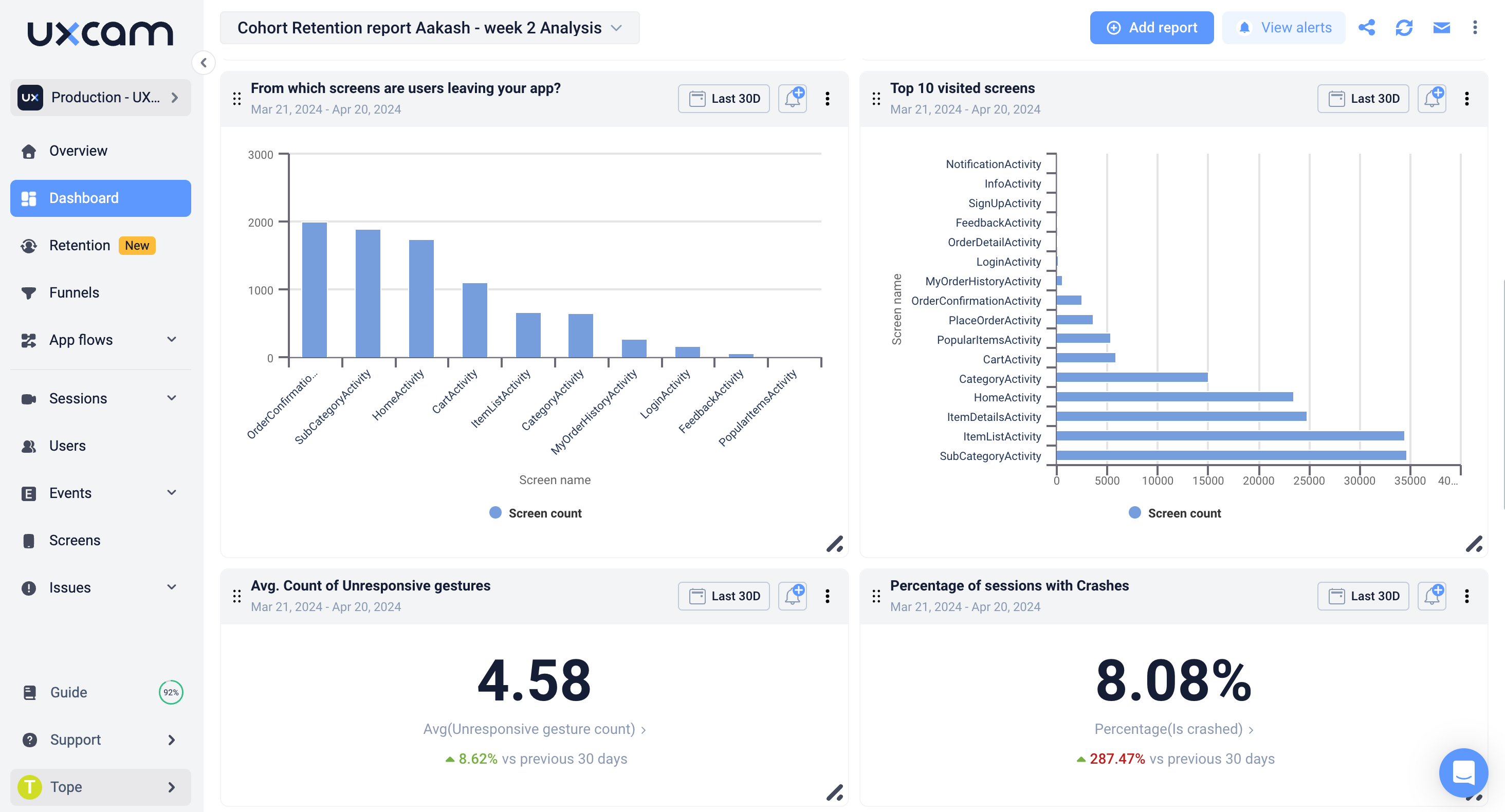

The results? Inspire was able to take a data-driven approach to development that boosted time spent in the app by 460%.
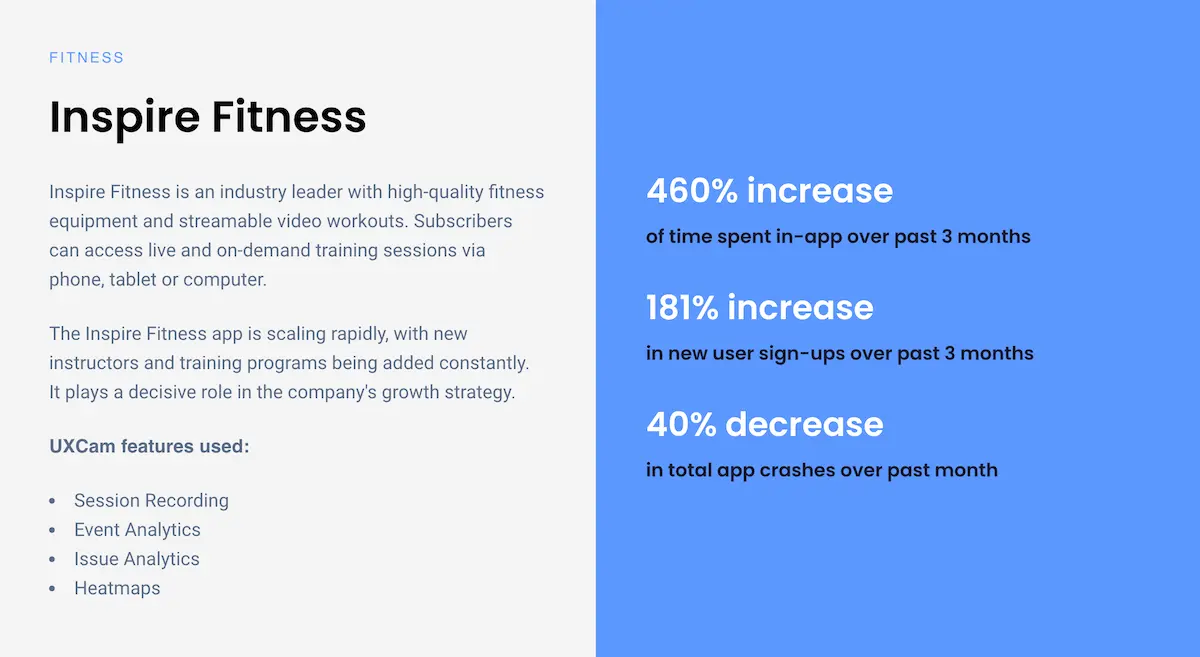
3. JobNimbus: Testing hypotheses
Poor design and development choices can be demoralizing. It’s especially hard to figure out what your users do want when you’ve guessed incorrectly in the past. Forming and testing hypotheses with user behavior analytics can help you find the right path forward.
JobNimbus is a cloud-based project management and CRM software for contractors. And their mobile app was (at one point) a top-three reason for churn—not ideal. They smartly called for a complete redesign and turned to UXCam for help validating their ideas.
The team used UXCam’s modular dashboards to track key metrics and KPIs.
Whenever they implemented a new design or feature, they would use the dashboard to see if it had a positive impact on user behavior. They also used session replays, heatmaps, and user journey analysis to understand the “whys” behind confusing user behavior.
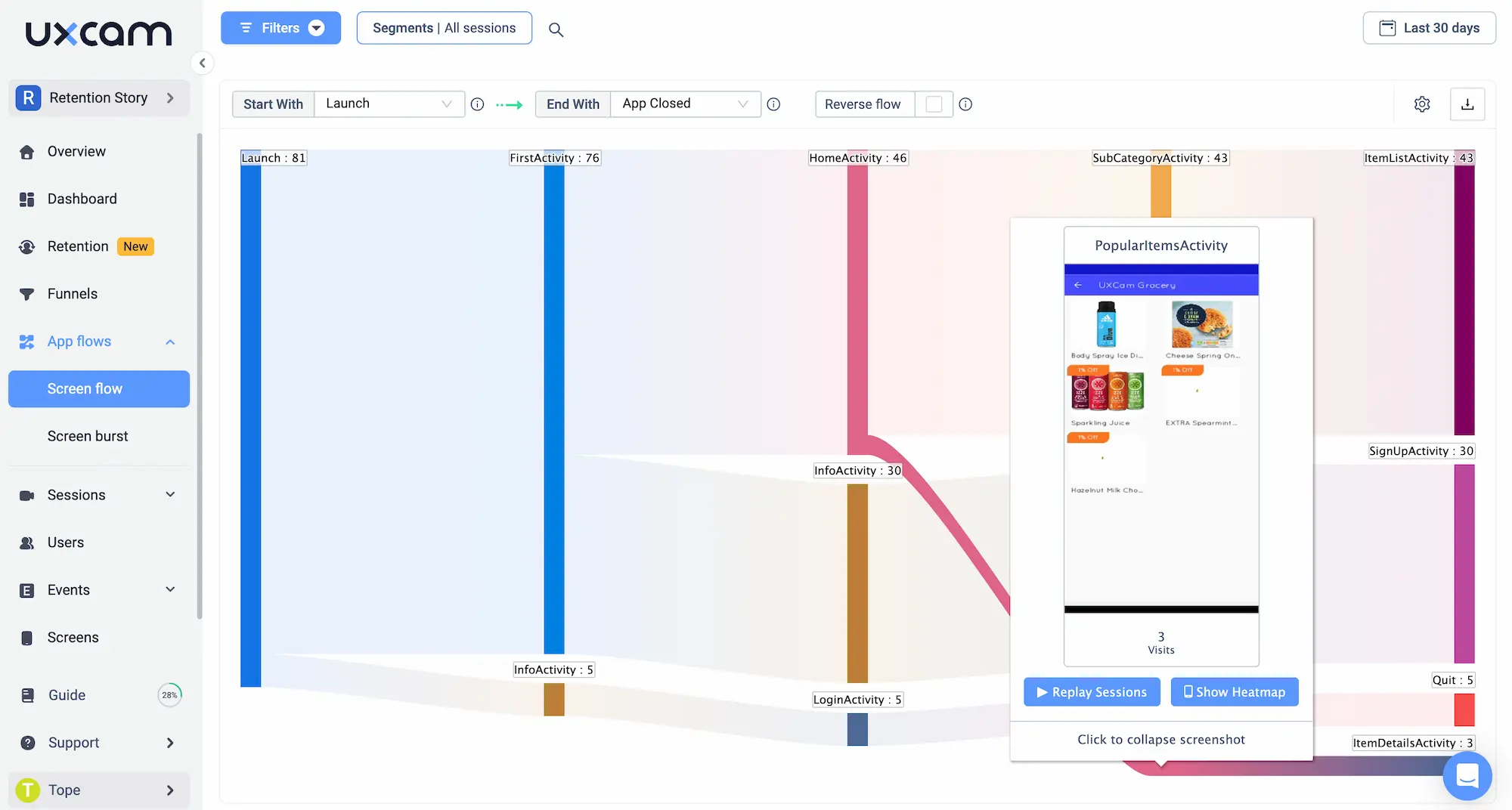
In just 18 months, they managed to build an app that was a top-three retention reason.
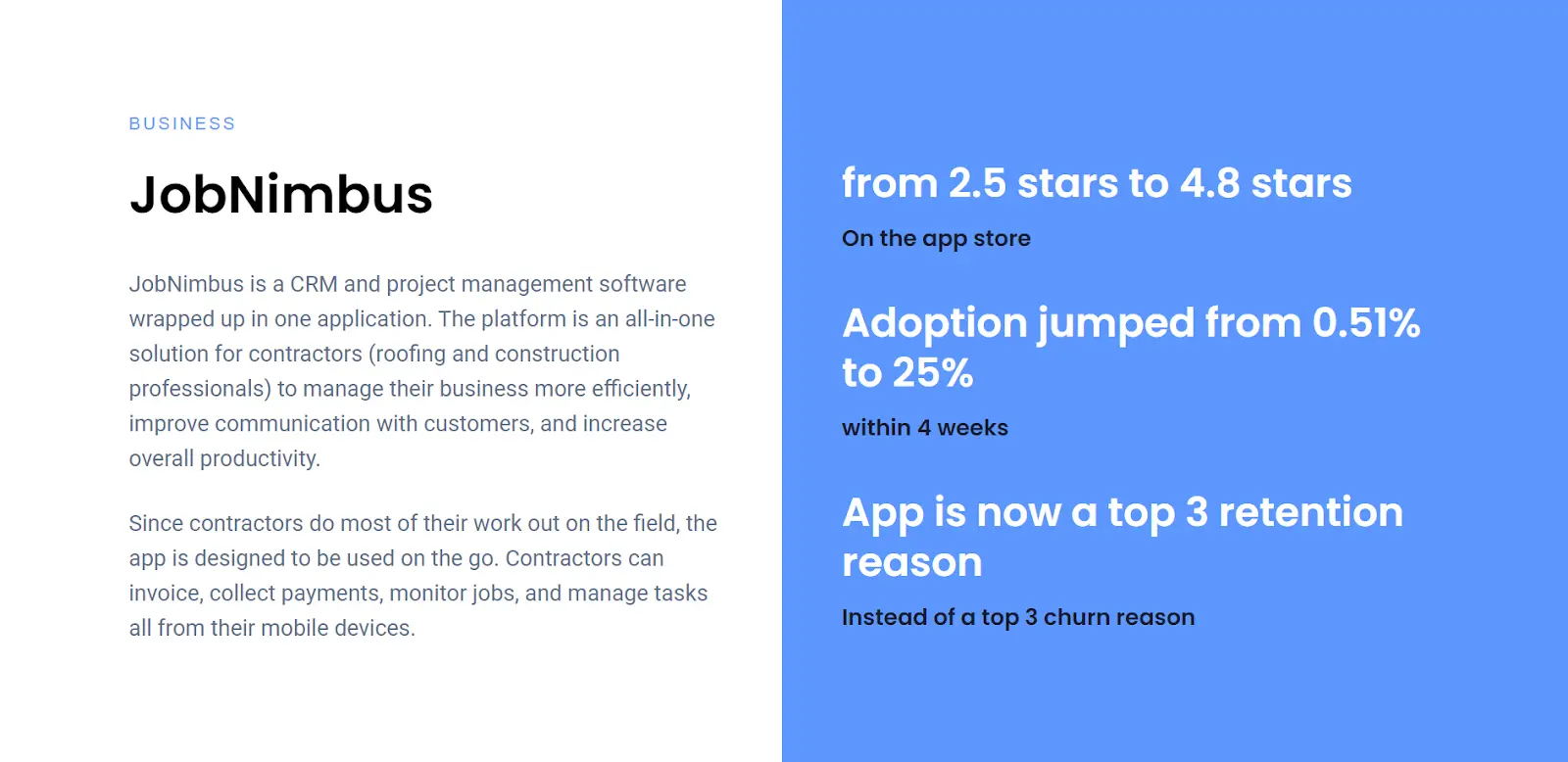
Conclusion
Getting started with user behavior analytics can be daunting. Hopefully, these examples have shown just how intuitive it can be to solve product problems with user data.
Of course, having the right set of tools can be a big help. The reason UXCam stands out from the rest is our focus on mobile products and our commitment to making product analytics accessible to everyone—from tech-savvy developers to non-technical marketers.
Want to see UXCam in action? Get started with a free trial or schedule a demo.
You might also be interested in these;
5 best behavioral analytics tools & software for mobile apps
How to conduct a mobile app user behavior analysis
Behavioral cohort analysis - how to Use them to improve UX
AUTHOR

Tope Longe
Product Analytics Expert
Ardent technophile exploring the world of mobile app product management at UXCam.
What’s UXCam?
Related articles
UX design
We Reviewed the Top 19 UX Tools for 2026
Find out the industry-standard tools and software the best UX designers use to design better User...

Jonas Kurzweg
Product Analytics Expert
UX design
Auditoria de UX – Como Realizar uma (Etapas, Modelos e Checklist)
Navegue por auditorias de UX com facilidade usando nosso guia para iniciantes, com instruções passo a passo, modelos personalizáveis e um checklist...

Tope Longe
Product Analytics Expert
UX design
UX Audit - How to Conduct One (Steps, Templates & Checklist)
Navigate UX audits effortlessly with our beginner's guide, offering step-by-step instructions, customizable templates, and a detailed...

Tope Longe
Product Analytics Expert
